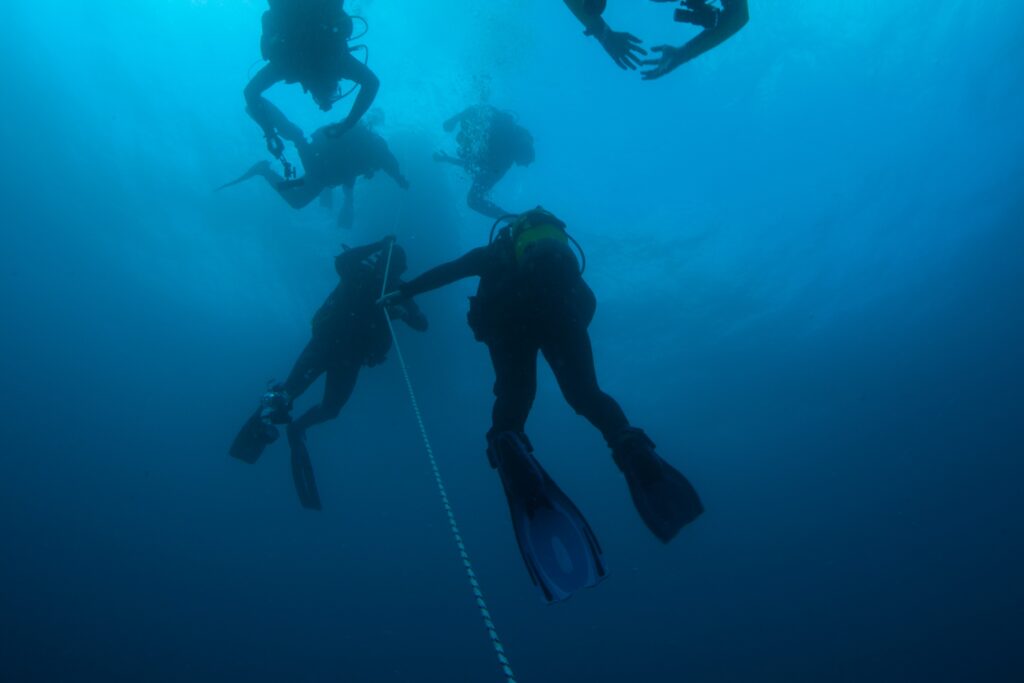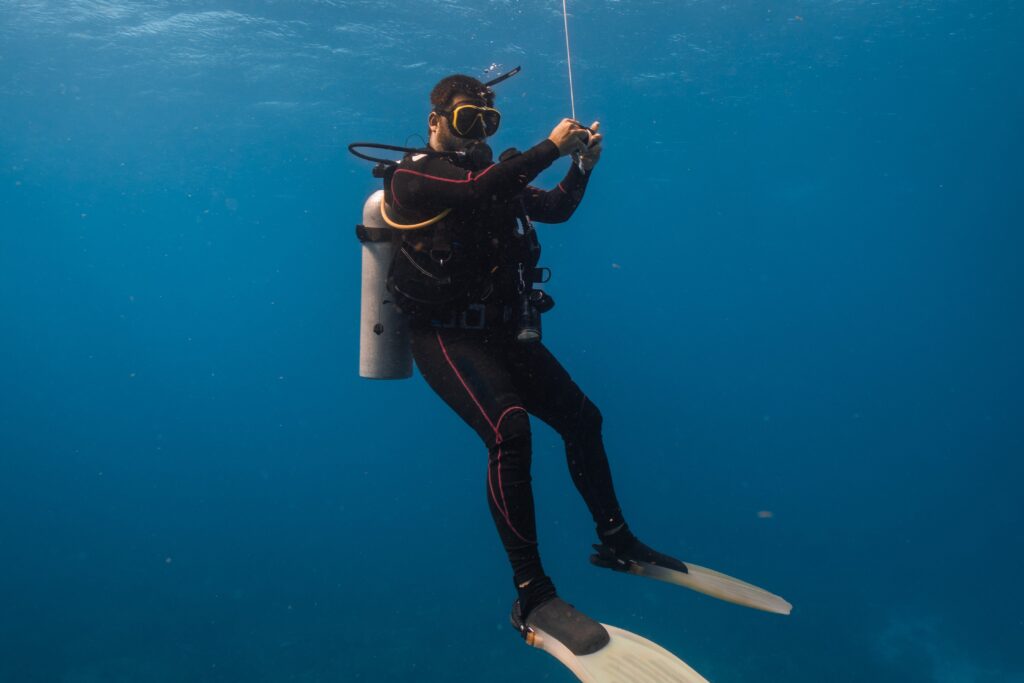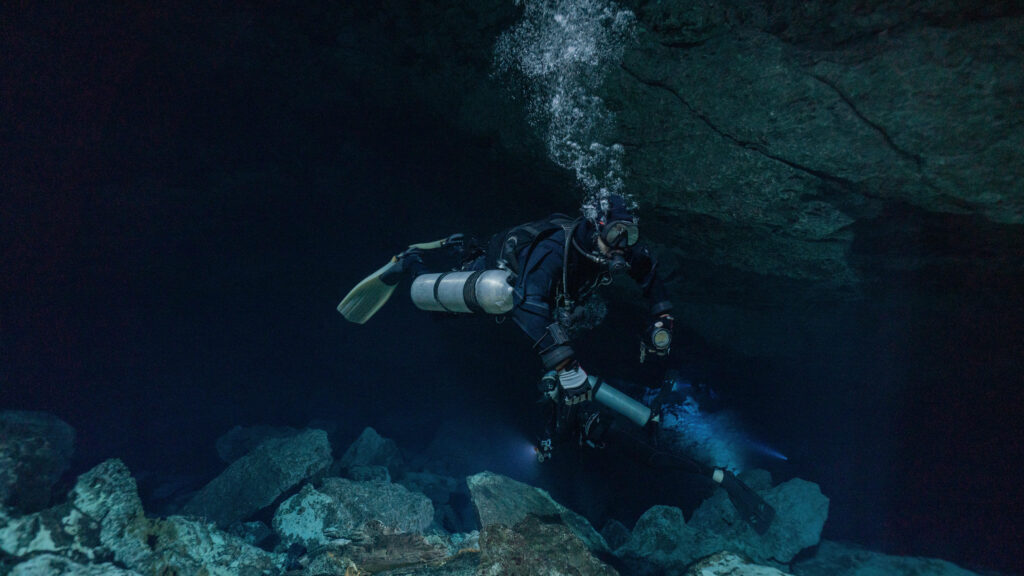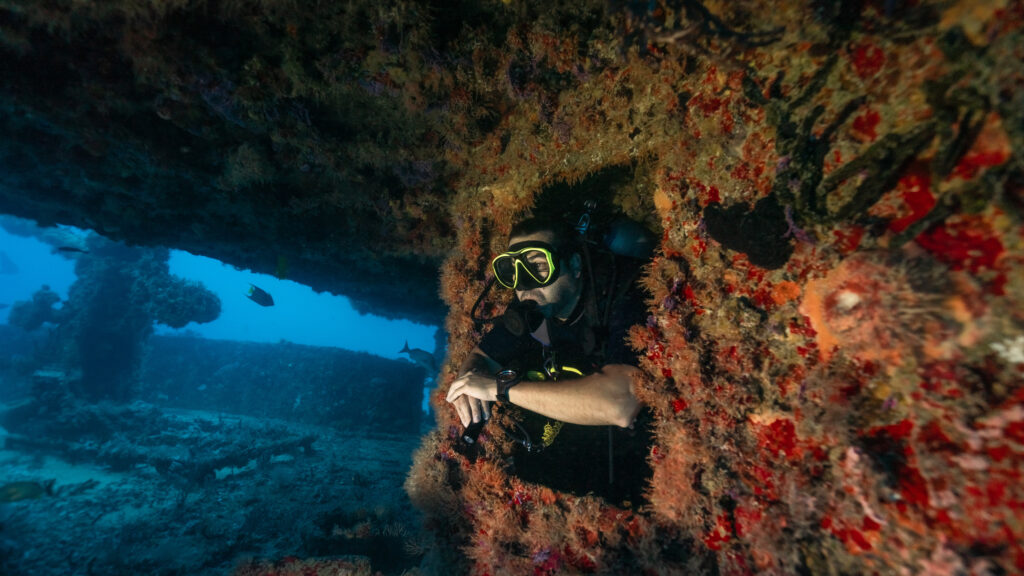10 Things Not to Forget at Home When Packing for Your Next Scuba Diving Trip

Imagine this scenario: you’ve finally arrived at one of the world’s most exquisite diving locations, eager to explore the colorful, vibrant depths below. As you unpack, your heart sinks when you realize that you’ve left a crucial piece of equipment behind. Scuba diving offers an unmatched adventure, plunging into an alien world filled with wondrous marine life and serene, untouched landscapes. However, this thrilling experience requires not just bravery and enthusiasm but meticulous preparation.
What is a Trim Weight?

A trim weight is a weight specifically designed and used by scuba divers to improve their underwater buoyancy and body positioning, promoting a horizontal orientation during a dive. By adjusting the location and amount of these weights, divers can ensure a balanced and streamlined profile underwater.
What is a Decompression Stop in Scuba Diving?

A decompression stop is a critical part of the scuba diving ascent process. Decompression stops are designed to prevent the dangerous condition known as decompression sickness (DCS).
What is a Decompression Chamber (Hyperbaric Chamber)?

A decompression chamber, also known as a hyperbaric chamber, is a large cylindrical tube designed to facilitate the gradual adjustment of deep-sea divers to normal air pressure.
What is a Safety Stop during Scuba Diving?

A safety stop is a voluntary pause during a diver’s ascent, usually lasting around 3 minutes and occurring at a depth of approximately 5 meters (15 feet).
What is Absolute Pressure in Scuba Diving Context?

Absolute pressure, a term frequently used in the field of scuba diving, refers to the total static pressure at a particular point. It is a vital concept that divers need to understand and appreciate to ensure safety during their underwater adventures. In technical terms, absolute pressure is the sum of the atmospheric pressure and the pressure due to any fluid column above the point of measurement. It is always measured relative to a perfect vacuum, which is devoid of all matter and hence bears a pressure of zero.
What is a Lost Buddy Drill?

The lost buddy drill is a critical safety procedure in scuba diving designed to locate a missing dive partner and ensure the safety of both divers. When a buddy pair becomes separated underwater, it is vital to act quickly and effectively to minimize risk. This drill outlines a series of steps to be taken in such an event, focusing on maintaining calm, executing a systematic search, and communicating effectively. The lost buddy drill is an essential part of scuba training and is emphasized for all levels of divers, from beginners to advanced technical divers, due to its potential to prevent accidents and save lives.
What is Vasoconstriction?

Vasoconstriction is the process by which blood vessels narrow due to the contraction of muscular walls in the vessels, primarily small arteries and arterioles. This biological phenomenon is significant in regulating blood flow and blood pressure throughout the body. For scuba divers, understanding vasoconstriction is crucial because it directly impacts how their bodies react to the underwater environment, including the cold temperatures and increased pressure that are often encountered during a dive.
What is the Maximum Operating Depth?

Maximum Operating Depth (MOD) is a critical concept in the field of scuba diving. It refers to the deepest depth at which a particular gas mixture can be used safely without the diver experiencing oxygen toxicity. Understanding and adhering to the MOD is essential for ensuring diver safety and preventing potentially life-threatening conditions. MOD varies depending on the gas mixture being used and is influenced by the partial pressure of oxygen within the breathing gas. By comprehending the significance of MOD, divers can plan their underwater excursions more effectively and reduce the risks associated with diving to greater depths.
What is Hyperventilation?

Hyperventilation refers to a state of rapid or deep breathing that exceeds the body’s need for oxygen. This condition leads to a significant decrease in carbon dioxide levels in the blood, causing various physiological effects. Understanding hyperventilation is crucial for scuba divers as it can profoundly impact their safety and overall experience underwater. Divers need to be aware of the causes, effects, and preventive measures related to hyperventilation to ensure safe and enjoyable diving experiences.
